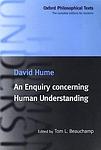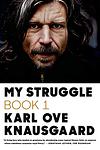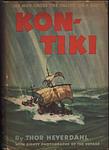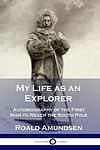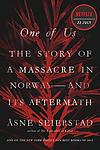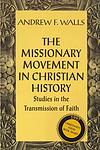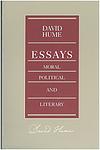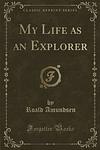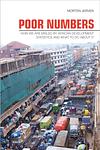The Greatest Norwegian, Scottish "Nonfiction" Books of All Time
Click to learn how this list is calculated.
This list represents a comprehensive and trusted collection of the greatest books. Developed through a specialized algorithm, it brings together 300 'best of' book lists to form a definitive guide to the world's most acclaimed books. For those interested in how these books are chosen, additional details can be found on the rankings page.
Genres
Countries
Date Range
Reading Statistics
Click the button below to see how many of these books you've read!
Download
If you're interested in downloading this list as a CSV file for use in a spreadsheet application, you can easily do so by clicking the button below. Please note that to ensure a manageable file size and faster download, the CSV will include details for only the first 500 books.
Download-
1. The Wealth of Nations by Adam Smith
This influential economic book presents a groundbreaking theory that argues for free market economies. The author posits that individuals acting in their own self-interest within a system of natural liberty will result in societal benefit, a concept often referred to as the "invisible hand" theory. The book also critiques mercantilism and explores concepts such as the division of labor, productivity, and free markets. It is widely considered one of the foundational texts in the field of economics.
-
2. An Enquiry Concerning Human Understanding by David Hume
This philosophical work explores the nature of human knowledge, arguing that all of our understanding comes from experience rather than innate ideas. The author challenges the idea of causality, suggesting that our belief in cause and effect is based on habit rather than logical reasoning. The book also discusses the limitations of human understanding, including the inability to fully comprehend the concept of God or the soul, and the impossibility of certain knowledge. The author's skepticism about traditional philosophical concepts has had a significant influence on later philosophers and the field of epistemology.
-
3. Kon-Tiki by Thor Heyerdahl
This book is a captivating real-life adventure story about a Norwegian explorer and his crew who set out on a daring voyage across the Pacific Ocean on a balsa wood raft. The journey, undertaken to prove a controversial anthropological theory about the settlement of Polynesian islands, is filled with danger, excitement, and discovery. The author's vivid descriptions of the perilous journey, the magnificent sea life they encounter, and the ultimate success of their expedition make this a thrilling and inspiring read.
-
4. The Bookseller of Kabul by Asne Seierstad
This book provides an intimate and eye-opening look into the everyday life of an Afghan family. The narrative follows a bookseller in Kabul, who despite the oppressive Taliban regime, courageously continues his trade. The story delves into his family dynamics, the struggles of his two wives, his children's lives, and the societal norms and customs they navigate. It paints a vivid picture of life in Afghanistan, exploring the themes of love, courage, resilience, and the power of literature.
-
5. My Struggle by Karl Ove Knausgaard
The book in question is an autobiographical novel that delves deeply into the minutiae of the author's life, exploring his personal relationships, emotions, and the everyday experiences that shape his identity. It is a candid and introspective narrative that spans across various stages of his life, from childhood to adulthood, and examines themes such as family, death, love, and ambition. The author's unflinching honesty and detailed prose invite readers to reflect on the complexities of their own lives, as he scrutinizes the ordinary moments that, collectively, define who we are.
-
6. Farthest North by Fridtjof Nansen
"Farthest North" is a riveting firsthand account of a polar expedition undertaken in the late 19th century. The author, a Norwegian explorer, recounts his daring attempt to reach the North Pole by allowing his specially designed ship to be frozen into the Arctic ice and carried by the drift. The narrative includes fascinating descriptions of the Arctic environment, thrilling tales of survival against harsh conditions, and scientific observations. The expedition, although it did not reach the North Pole, achieved the highest latitude to that date and contributed significantly to Arctic exploration.
-
7. The Kon-Tiki Expedition: By Raft Across the South Seas by Thor Heyerdahl
The book is a thrilling account of a daring and adventurous expedition across the Pacific Ocean on a balsa wood raft named Kon-Tiki. The journey, led by a Norwegian explorer, is an attempt to prove that South Americans could have settled Polynesia in pre-Columbian times. The narrative is filled with descriptions of dangerous encounters with marine life, harsh weather conditions, and the challenges of surviving on the open sea. The expedition's success provides compelling evidence in support of the author's theory.
-
8. The South Pole by Roald Amundsen
The book is a detailed firsthand account of the first successful expedition to the South Pole, led by the author, a noted Norwegian explorer. It chronicles the meticulous planning, the journey's challenges, and the strategic decisions that enabled the team to reach the pole on December 14, 1911, ahead of their British rivals. The narrative combines personal reflections, vivid descriptions of the harsh Antarctic environment, and insights into the teamwork and innovation crucial for survival and success in one of the most extreme climates on Earth.
-
9. One Of Us: The Story Of Anders Breivik And The Massacre In Norway by Asne Seierstad
One of Us by Asne Seierstad is a detailed account of the 2011 terrorist attack in Oslo, Norway, carried out by Anders Breivik. The book explores Breivik's background, motives, and planning leading up to the attack, as well as the aftermath and impact on the survivors and families of the victims. Seierstad's thorough research and interviews with those affected provide a comprehensive and emotional portrayal of the tragedy, shedding light on the complexities of extremism and the devastating consequences of hate.
-
10. Ecology, Community And Lifestyle by Arne Naess
"Ecology, Community and Lifestyle" is a philosophical text that outlines the principles of deep ecology, a movement emphasizing the intrinsic value of all living beings and the need for radical shifts in modern human societies to sustain ecological balance. The book delves into the interdependence between human life and the environment, advocating for a comprehensive transformation in our lifestyles and political systems to foster a sustainable relationship with the earth. It combines insights from ecology, philosophy, and sociology to propose a more harmonious way of living that respects the limits of the planet's resources and promotes a thriving, diverse biosphere.
-
11. The Missionary Movement In Christian History by Andrew Walls
"The Missionary Movement in Christian History" explores the significant role of missionary activities in the spread and development of Christianity throughout history. The book examines how cultural exchanges influenced the practice and perception of Christianity in various contexts, highlighting the adaptability and transformation of Christian faith as it intersected with diverse cultures around the world. The author discusses the implications of these interactions for both the missionary movement and the broader historical and cultural developments, providing insights into the dynamic relationship between religion and cultural change.
-
12. Essays, Moral, Political, And Literary by David Hume
This collection of essays by the philosopher explores a range of topics across ethics, politics, and aesthetics. Written in a clear, conversational style, the essays examine human nature, the workings of government, economic theories, and the merits of refined taste, among other subjects. The author employs a skeptical approach to question traditional doctrines and suggests that politics and morals should be grounded in empirical observations of the world. The work reflects the Enlightenment spirit of rational inquiry and has been influential in the development of modern political philosophy and economic thought.
-
13. Essays Of Robert Louis Stevenson by Robert Louis Stevenson
This collection of essays offers a window into the mind of its renowned author, showcasing his wide-ranging interests, personal reflections, and literary prowess. The essays cover topics as diverse as travel, dreams, writing, and the complexities of human nature, all conveyed with the author's characteristic wit, eloquence, and insight. Through these pieces, readers are invited to ponder life's great questions and to appreciate the everyday wonders that the author observes with such keen perception and articulates with timeless grace.
-
14. Treatise on Electricity and Magnetism by James Clerk Maxwell
This seminal scientific work revolutionized the understanding of electricity and magnetism, providing a comprehensive mathematical framework for the interrelationship between these two forces. The book lays out the foundation of electromagnetic theory, introducing key concepts such as electromagnetic fields, electromagnetic waves and the speed of light. It also introduces the four fundamental equations, now named after the author, that describe how electric charges and currents create electric and magnetic fields.
-
15. My Life As an Explorer (Amundsen) by Roald Amundsen
This autobiography tells the story of a Norwegian explorer who led the first expeditions to reach the South Pole, traverse the Northwest Passage, and fly over the North Pole in a dirigible. The book provides a detailed account of his adventures, including his experiences with the indigenous peoples of the Arctic, his struggles with harsh weather conditions, and his insights on leadership and survival in extreme environments. The author's love for exploration and his respect for the natural world shine through in his writing.
-
16. Classic Crimes by William Roughead
"Classic Crimes" is a compelling collection of true crime essays that delve into notorious criminal cases in Scotland from the 17th to the early 20th century. Written by a prominent figure in the field of criminology, the book provides detailed accounts and analyses of various infamous crimes, including murder and scandal, exploring the legal proceedings and societal impacts of each case. The author's meticulous research and engaging narrative style bring these historical crimes to life, offering insights into the darker aspects of human nature and the evolving nature of criminal justice in Scotland.
-
17. A Death in the Family by Karl Ove Knausgaard
"A Death in the Family" is a deeply personal and introspective narrative that delves into the complexities of familial relationships, childhood, death, and memory. The protagonist, a writer, is forced to confront his past and his relationship with his alcoholic father after his death. The novel explores the impact of this death on the protagonist's life and his struggle to come to terms with his complicated feelings of love, resentment, and guilt. The narrative is a profound exploration of the human condition, the intricacies of family dynamics, and the lasting impact of grief and loss.
-
18. Poor Numbers by Morten Jerven
This book critically examines the reliability of economic statistics in Sub-Saharan Africa, revealing a significant gap between the reported data and the actual economic realities on the ground. The author delves into the systemic issues plaguing statistical offices across the continent, including underfunding, political interference, and a lack of technical capacity, which collectively contribute to the production of inaccurate economic data. By analyzing the processes and methodologies used to gather and report these statistics, the book sheds light on the profound implications these "poor numbers" have for policy-making, economic development, and international perceptions of African economies. Through this exploration, it calls for a reevaluation of how economic data in these countries is collected and used, advocating for reforms that could lead to more accurate and meaningful measurements of economic progress.
-
19. Tall Tales And Wee Stories by Bill Connolly
"Tall Tales And Wee Stories" is a collection of humorous anecdotes and reflections from a beloved comedian's life and career. The book is a treasure trove of laughter, wisdom, and the occasional poignant moment, showcasing the author's storytelling prowess and unique perspective on life. Through a series of entertaining narratives, the reader is taken on a journey through the comedian's early days in show business, his observations on everyday absurdities, and his experiences on the road, all delivered with his signature wit and charm. This compilation serves as a celebration of a lifetime in comedy and an invitation to share in the joy of his uproarious adventures.
Reading Statistics
Click the button below to see how many of these books you've read!
Download
If you're interested in downloading this list as a CSV file for use in a spreadsheet application, you can easily do so by clicking the button below. Please note that to ensure a manageable file size and faster download, the CSV will include details for only the first 500 books.
Download
